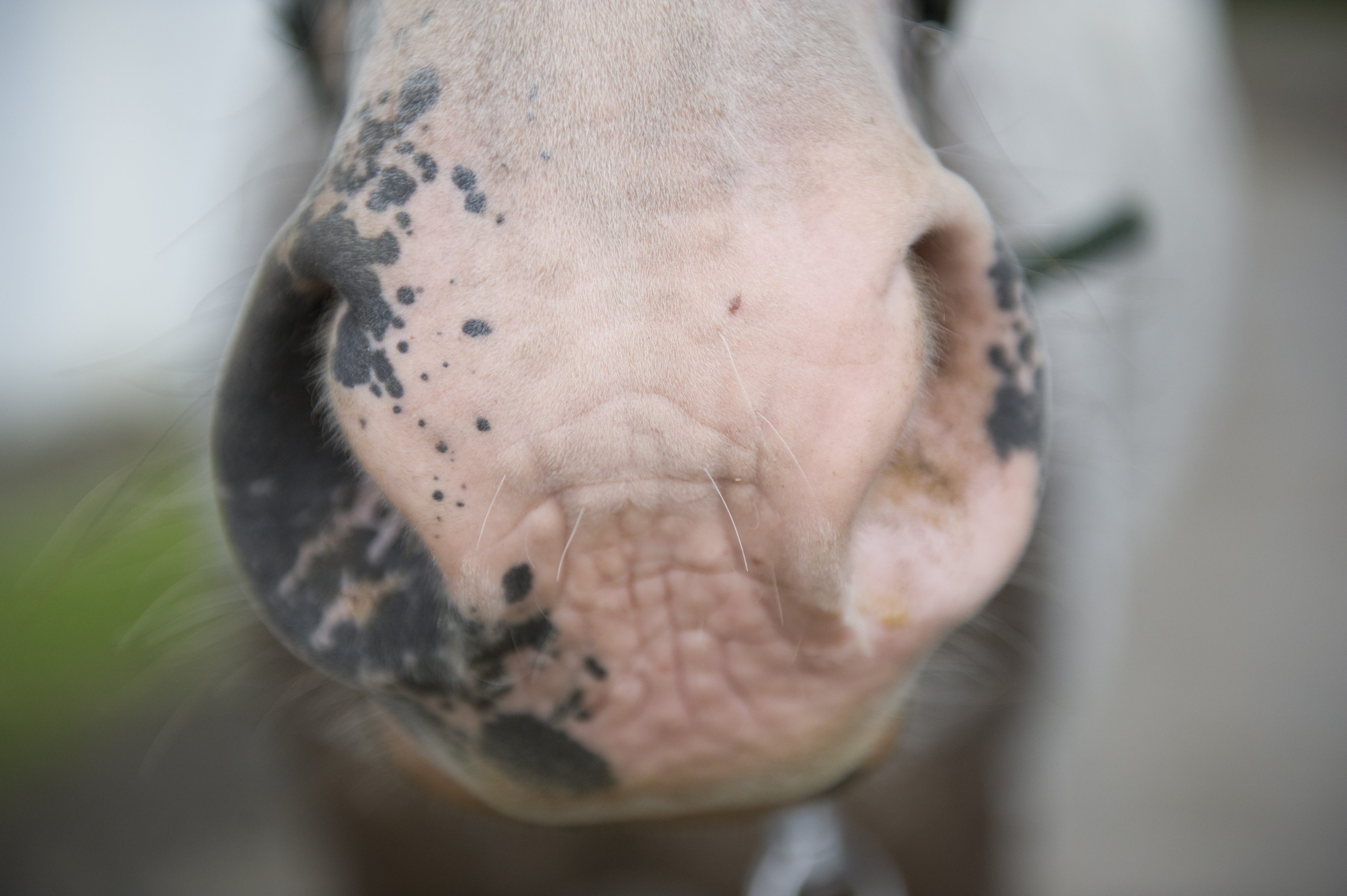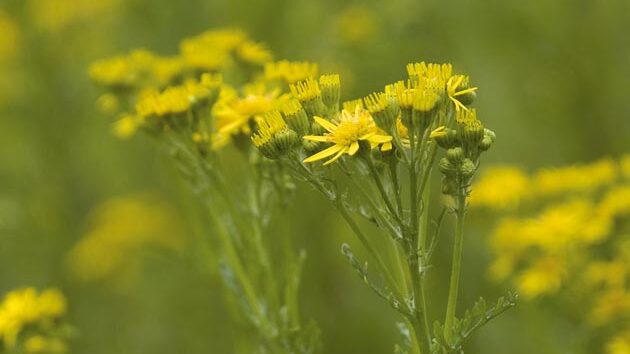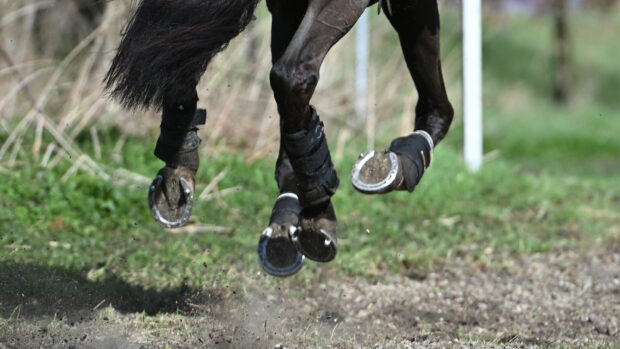While many plants can be poisonous to horses if eaten to excess, there are some poisonous plants for horses that should be avoided at all costs.
In the UK, the most common form of poisoning is caused by the ingestion of ragwort over a period of time, but there are other plants which can cause severe problems — including death — if horses consume them.
Poisoning can take many forms in a horse, from ill thrift and photosensitisation to disease or disruption of the function of key body systems. There are seven different broad types of poison — alkaloids (as found in ragwort, yew, hemlock), glycosides, nitrates, photosensitisers, saponins and complex proteins. Within each category are many different active compounds.
Horses are most likely to consume poisonous plants if they have nothing else to eat as a result of a combination of poor grazing with a heavy infestation of such plants, or due to their undetected presence in hay or haylage.
Here is our guide to the fatal flora you need to know about to avoid a very sad and avoidable untimely end for your equine partner.
Poisonous plants for horses
1. Ragwort
Instantly recognisable from its frilly leaves and star-shaped yellow flowers, the deadly ragwort plant is common in British meadows. Once eaten, it attacks the horse’s liver. Horses will normally avoid eating ragwort because of the bitter taste, but it is palatable when dried and fed in hay. Under DEFRA regulations, landowners can be penalised for allowing ragwort to spread to grazing land, but horse owners should always remain vigilant and frequently check their hay.
Signs to look out for: One early sign of ragwort poisoning is weight loss, despite the horse eating normally. If detected in time, the effects can be treated with steroids; if not, the horse may go blind and eventually collapse.
What to do: Check your horse’s paddock regularly for ragwort, and dig it up at the roots and burn it when found. It is recommended to wear gloves when handling the plant. Use a reputable and trusted hay supplier.
More about ragwort:
2. Sycamore

Historically, sycamores were not thought to be harmful to equines, but recently the often-fatal muscle condition Atypical Myopathy (AM) has become much more common in Britain. Triggered by the ingestion of sycamore seeds (also known as helicopter seeds), leaves and seedlings, AM is a fast killer with a mortality rate of between 75 and 90%. There’s no specific treatment for the condition, with affected horses given intensive veterinary care and IV fluids.
Signs to look out for: Lethargy, sweating, muscular stiffness, high heart rate, dark urine and difficulty standing. Affected horses are often found lying down.
What to do: The condition is more common in autumn, when the seeds and leaves are blown from the trees. Remove them along with any sycamore seedlings that appear in spring. Fence off sycamore trees from paddocks and ensure horses have access to sufficient supplementary feed to minimise the risk of foraging for alternative foods.
More about atypical myopathy
3. Oak trees including acorns
Although some wild animals depend on acorns for their nutritional needs, the horse is not one of them. The tannic and gallic acids in acorns can cause severe damage to the equine gastrointestinal system and kidneys. It’s not just the acorns either – all parts of the oak are toxic to horses. Strangely, there’s anecdotal evidence that some horses get ‘addicted’ to acorns and will over-indulge in them to the point of making themselves ill.
Signs to look out for: Constipation, weight loss, colic, blood in the urine and fluid accumulation in the legs (edema) may indicate oak poisoning, but specific diagnosis can be difficult unless your horse has a history of consuming acorns.
What to do: Avoid grazing your horse in fields containing oak trees, or fence off the trees, particularly during autumn when the acorns fall. Activated charcoal (which absorbs toxins from the gut and allows them to be harmlessly excreted) is known to be an effective treatment if given immediately after ingestion; however, always seek the advice of your vet first.
4. Yew
The leaves, twigs and bark of the Yew tree are all toxic to horses and the lethal dose can be extremely small. The plant’s toxic alkaloids (taxine A and B) are extremely fast acting and horses have been found dead with the leaves of the tree still in their mouths. It is one of the most common causes of equine poisoning in France and Belgium. Luckily the bitter taste of the plant will put most horses off having a chew, but it’s not a plant to take risks with.
Signs to look out for: The horse dies from cardiac arrest. Prior to this muscle trembling, a lack of co-ordination, breathing difficulties, a slow heart rate and convulsions may be seen.
What to do: There is no treatment. Never graze horses in a field where they will have access to yew or where there is a risk that yew clippings might be tossed into their paddock. If neighbours have yew in their gardens, speak to them to explain the dangers.
5. Bracken
Found on moors and in meadows, horses will usually avoid eating bracken ferns unless grazing is particularly poor – although some do develop a taste for it. The good news is that it’s only harmful if digested in large quantities, such as ongoing consumption over a couple of months.
Signs to look out for: Bracken poisoning results in neurological (nervous system) symptoms that may include nervousness, circling, staggering, muscle spasms, blindness and convulsions. It can be treated with thiamine supplementation prescribed by a vet if caught early enough.
What to do: Horses usually avoid bracken, but if concerned, remove it from your horse’s field. Maintain good pasture management, regularly removing weeds to allow grass to grow, so your horse has no reason to consume it.
Other plants that are poisonous to horses include:
- Foxglove
- Deadly nightshade
- Buttercups
- Privet
- Rhododendron
- St John’s Wort
- Potatoes
- Meadow Saffron
- Horsetails/ Mare’s Tails
- Water Dropwort
- Hemlock
You may also be interested in…

23 ways to beat flies this summer
We might be excited about the prospect of some sun — but with it comes the pesky flies. So we

Are buttercups poisonous to horses? We ask the experts…

How to avoid your horse suffering from sunburn this summer

Subscribe to Horse & Hound magazine today – and enjoy unlimited website access all year round








